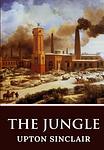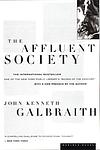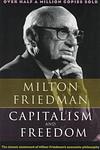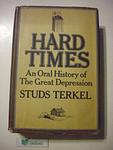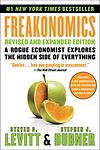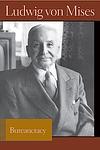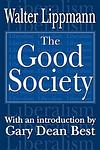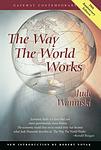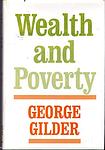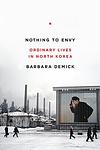The Greatest American, Austrian "Economics, Political" Books of All Time
Click to learn how this list is calculated.
This list represents a comprehensive and trusted collection of the greatest books. Developed through a specialized algorithm, it brings together 305 'best of' book lists to form a definitive guide to the world's most acclaimed books. For those interested in how these books are chosen, additional details can be found on the rankings page.
Genres
Economics is a category of books that explores the production, distribution, and consumption of goods and services. It delves into the principles of supply and demand, market structures, and the role of government in regulating economic activity. Books in this category may cover topics such as macroeconomics, microeconomics, international trade, finance, and economic history. They provide insights into how economic systems work and how they impact individuals, businesses, and society as a whole.
The "Political" category of books encompasses works that explore the theory, practice, and history of government and politics. These books may cover topics such as political ideologies, political systems, political institutions, political movements, and political leaders. They may also examine the relationship between politics and other areas of society, such as economics, culture, and international relations. Political books can be both informative and thought-provoking, offering readers insights into the complexities of the political world and the challenges of governing in a democratic society.
Countries
Date Range
Reading Statistics
Click the button below to see how many of these books you've read!
Download
If you're interested in downloading this list as a CSV file for use in a spreadsheet application, you can easily do so by clicking the button below. Please note that to ensure a manageable file size and faster download, the CSV will include details for only the first 500 books.
Download-
1. One Flew Over the Cuckoo's Nest by Ken Kesey
Set in a psychiatric hospital in Oregon, the novel is narrated by a half-Native American patient known as Chief Bromden, who pretends to be deaf and mute. The story follows the arrival of a new patient, a boisterous, rebellious man who challenges the oppressive and dehumanizing system of the hospital, particularly the tyrannical Nurse Ratched. The book explores themes of individuality, rebellion, and the misuse of power, ultimately leading to a tragic conclusion.
The 98th Greatest Book of All Time -
2. The Jungle by Upton Sinclair
This novel exposes the harsh conditions and exploited lives of immigrants in the United States in Chicago and similar industrialized cities. The protagonist, a young Lithuanian immigrant, works in the meatpacking industry and experiences the extreme poverty, poor working conditions, and lack of social services. The narrative explores the corruption of the American meatpacking industry in the early 20th century and the hardships faced by the working class, leading to significant public outcry that contributed to the passage of the Pure Food and Drug Act.
The 184th Greatest Book of All Time -
3. Atlas Shrugged by Ayn Rand
This novel unfolds in a dystopian United States where society's most productive citizens, including inventors, scientists and industrialists, refuse to be exploited by increasing social and economic demands. As a response, they withdraw their talents, leading to the collapse of the economy. The story presents the author's philosophy of objectivism, which values reason, individualism, and capitalism, and rejects collectivism and altruism. The narrative primarily follows Dagny Taggart, a railroad executive, and John Galt, a philosophical leader and inventor, as they navigate this societal breakdown.
The 225th Greatest Book of All Time -
4. The Affluent Society by John Kenneth Galbraith
"The Affluent Society" is a socio-economic critique that challenges the conventional wisdom of the time that economic growth leads to public wealth. The author argues that in reality, the increasing wealth of the United States has led to greater private affluence but public squalor due to inadequate investment in public goods and services. He proposes that society should strive for sustainable development rather than unlimited material advancement. The book has been influential in economic thought, particularly in the areas of public policy and consumer behavior.
The 423rd Greatest Book of All Time -
5. Capitalism and Freedom by Milton Friedman
This book explores the role of competitive capitalism - the organization of the bulk of economic activity through private enterprise operating in a free market - as both a device for achieving economic freedom and a necessary condition for political freedom. The author further examines how freedom could be preserved in a society where the roles and importance of government are ever expanding, and presents his view on topics such as monetary policy, fiscal policy, education, discrimination, and the alleviation of poverty.
The 897th Greatest Book of All Time -
6. The Road to Serfdom by Friedrich von Hayek
"The Road to Serfdom" is a classic work of political philosophy and economics that argues against the concept of socialism and centralized economic planning. The author asserts that such systems inevitably lead to totalitarianism, infringing upon individual liberties and stifling innovation. The book further posits that only through free-market capitalism can societies maintain political and economic freedom. The author also explores the dangers of government control over means of production, illustrating that it leads to a loss of personal freedoms and the rise of dictatorial regimes.
The 986th Greatest Book of All Time -
7. A Theory of Justice by John Rawls
This book presents a seminal work in modern political philosophy, where the author proposes a model of justice that, despite being egalitarian, respects individual rights. The author's "veil of ignorance" thought experiment, which suggests designing society from an original position where no one knows their future place in society, has been particularly influential. The author argues that this would lead to a system where each individual is assured basic liberties and socio-economic inequalities are only allowed if they benefit the least advantaged members of society.
The 1132nd Greatest Book of All Time -
8. Capitalism, Socialism, and Democracy by Joseph A. Schumpeter
The book provides an in-depth analysis of the interplay between capitalism, socialism, and democracy, arguing that capitalism is a catalyst for creative destruction and innovation, but also paves the way for socialism due to its inherent instability and tendency to create wealth inequality. It further suggests that democracy, while imperfect, is the best system to manage these economic systems. The author presents a unique perspective on the inevitable rise of socialism, not through revolution as Marx predicted, but through the legal and systematic erosion of capitalism by democratic means.
The 1176th Greatest Book of All Time -
9. The Theory of the Leisure Class by Thorstein Veblen
This book is a socio-economic critique of American consumerism and the upper class, written in the late 19th century. The author argues that the wealthy engage in conspicuous consumption and leisure to display their wealth and maintain their social status. He introduces the concept of "pecuniary emulation," suggesting that the lower classes imitate the consumption patterns of those above them, leading to a wasteful and inefficient economy. The book is a seminal work in the field of economics, providing a satirical yet insightful look into the behavior of the affluent.
The 1196th Greatest Book of All Time -
10. Hard Times: An Oral History of the Great Depression by Studs Terkel
This book is a compelling oral history of the Great Depression, featuring a collection of interviews from a diverse range of individuals who lived through the era. The interviewees include both the ordinary people and famous figures of the time, from businessmen and politicians to artists and criminals. The book provides a vivid, first-hand account of the economic hardship, social changes, and emotional struggles experienced by people during the 1930s, offering a unique perspective on this significant period in American history.
The 1394th Greatest Book of All Time -
11. The Unsettling of America by Wendell Berry
This book is a profound critique of modern industrial agriculture, arguing that it degrades the land and disconnects people from their food sources. The author advocates for a return to more traditional, sustainable farming methods, which he believes will lead to healthier communities and a more balanced relationship with the environment. He also explores the broader cultural implications of this shift, including the potential for greater self-reliance and a deeper sense of connection to the natural world.
The 2124th Greatest Book of All Time -
12. Nickel And Dimed by Barbara Ehrenreich
The book is a firsthand journalistic account of the author's experiment to survive on minimum wage jobs in America. She gives up her middle-class life to understand the reality of low-wage workers, working as a waitress, a hotel maid, a cleaning woman, a nursing home aide, and a retail chain employee. The book reveals the harsh and often overlooked conditions of the working poor, highlighting the struggle to afford even basic necessities, the lack of job security, and the physical toll of such work.
The 2219th Greatest Book of All Time -
13. Freakonomics by Steven D. Levitt, Stephen J. Dubner
This book explores the hidden side of everything, debunking conventional wisdom and revealing surprising connections between seemingly unrelated things. It uses economic theories to explain social phenomena such as the decrease in crime rates in the 1990s, the impact of a person's name on their life outcomes, and the inner workings of drug gangs. By using data and statistics, it challenges the way people think about the world and encourages them to question the accepted truths in society.
The 2620th Greatest Book of All Time -
14. The Economy of Cities by Jane Jacobs
"The Economy of Cities" explores the concept of urbanization and its impact on economic development. The author argues that cities are the primary drivers of economic growth and innovation, challenging the traditional belief that rural agriculture is the foundation of economic development. The book delves into the history of city development, the role of cities in fostering innovation, and how urban economies evolve and adapt over time. It further discusses the importance of diversity and small-scale entrepreneurship in creating vibrant, sustainable cities.
The 2676th Greatest Book of All Time -
15. Bureaucracy by Ludwig von Mises
"Bureaucracy" is a critical examination of the structure and function of bureaucracies in both the public and private sectors. The author argues that bureaucratic management, with its focus on rules and regulations, is not only inefficient but also stifles innovation and individual initiative. He further contends that these problems are inherent in the nature of bureaucracy itself and are not simply due to poor management or corruption. The book also explores the impact of bureaucracy on economics, politics, and society as a whole.
The 2703rd Greatest Book of All Time -
16. The Good Society by Walter Lippmann
"The Good Society" is a critical examination of the economic and political systems of the 20th century, with a focus on capitalism and socialism. The author argues that both systems have inherent flaws and suggests a third way, a form of democratic socialism, which would combine the best elements of both systems. The book offers a comprehensive analysis of the economic, social, and political structures of society, and presents a vision for a more equitable and just society.
The 2706th Greatest Book of All Time -
17. The Way the World Works by Jude Wanniski
"The Way the World Works" is an in-depth exploration of political economy, presenting an argument for supply-side economics. The author suggests that economic growth is primarily influenced by the reduction of barriers in production, including lower tax rates. The book presents historical examples to support this theory, arguing that government intervention often leads to economic instability. This text is considered a fundamental work in supply-side economics and has had a significant influence on economic policy discussions.
The 2900th Greatest Book of All Time -
18. Wealth and Poverty by George Gilder
"Wealth and Poverty" is an influential exploration of the economic and social theories that drive the wealth distribution in the United States. The book argues that supply-side economics and capitalism are the most effective systems for creating wealth and reducing poverty. It criticizes welfare programs and other forms of government intervention, asserting that they discourage individual initiative and are counterproductive in the long run. The book also discusses the moral and religious implications of wealth and poverty, emphasizing the importance of values such as discipline and the work ethic.
The 3053rd Greatest Book of All Time -
19. Working by Studs Terkel
"Working" is a collection of over 100 interviews conducted with people from all walks of life about their jobs. The book provides a unique perspective on the daily grind, as it explores the experiences, thoughts, and feelings of individuals in various professions. The interviews reveal the mundane, the challenging, and the rewarding aspects of work, offering a deep understanding of the complexities of the working world. The subject matter ranges from blue-collar jobs to professional careers, giving voice to the often unheard stories of everyday workers.
The 3433rd Greatest Book of All Time -
20. A Theory Of The Consumption Function by Milton Friedman
This book presents a groundbreaking study of the consumption patterns of individuals and households. The author challenges the traditional Keynesian consumption function which posits that individuals and households adjust their consumption spending in response to changes in income. Instead, the author proposes the "Permanent Income Hypothesis," asserting that consumers' spending habits are determined not by current income but by their longer-term income expectations. This influential theory has had a significant impact on economic policy and remains a cornerstone of macroeconomic theory.
The 3469th Greatest Book of All Time -
21. I'll Take My Stand by Twelve Southerners
"I'll Take My Stand" is a collection of essays by twelve authors who passionately defend the agrarian lifestyle and traditional Southern values against the encroachment of industrialization. They critique the effects of the industrial revolution on Southern society, arguing that it undermines the region's culture, economy, and environment. The book is a plea for the preservation of the agrarian way of life and a critique of the materialistic, consumer-driven culture that they believe is eroding the soul of the South.
The 3751st Greatest Book of All Time -
22. The Poverty of Power by Barry Commoner
The book in question critically examines the interlinked crises of energy, economy, and ecology facing the United States in the 1970s, arguing that the capitalist system, with its reliance on fossil fuels and unsustainable growth, is fundamentally at odds with environmental protection and social equity. The author contends that the pursuit of profit has led to the concentration of wealth, energy shortages, pollution, and the degradation of natural resources, ultimately resulting in a form of poverty characterized by a lack of power for the majority to effect change. The work calls for a radical restructuring of societal values and energy policies to prioritize renewable resources, conservation, and a more equitable distribution of wealth and power.
The 5097th Greatest Book of All Time -
23. Entropy by Jeremy Rifkin, Ted Howard
"Entropy" is a thought-provoking exploration of the second law of thermodynamics, also known as entropy, and its implications for society, economy, and the environment. The authors argue that our current economic systems and society are unsustainable due to the continuous consumption of energy, leading to increased disorder and waste. They propose a radical shift towards a more sustainable and equitable society, emphasizing the need for renewable energy sources, recycling, and energy conservation. The book serves as a compelling call to action for a more sustainable future.
The 5397th Greatest Book of All Time -
24. The Haunted Land by Tina Rosenberg
"The Haunted Land" is a compelling exploration of the aftermath of communism in Eastern Europe, specifically in the Czech Republic, Poland, and Germany. The book delves into the struggles of these nations as they grapple with their pasts under oppressive regimes, and their attempts to move forward towards democracy. The narrative also examines the moral dilemmas faced by these societies as they confront issues of justice, retribution, and memory.
The 6408th Greatest Book of All Time -
25. Nothing to Envy by Barbara Demick
"Nothing to Envy" is a non-fiction narrative that provides an in-depth look at life in North Korea through the eyes of six defectors. The book covers a span of 15 years, during which the country faced a devastating famine. It explores the lives of ordinary citizens, their indoctrination, their gradual realization of the truth about their government, and their decision to defect. The book paints a vivid picture of the harsh realities of life under a totalitarian regime and the struggle for survival and escape.
The 6469th Greatest Book of All Time
Reading Statistics
Click the button below to see how many of these books you've read!
Download
If you're interested in downloading this list as a CSV file for use in a spreadsheet application, you can easily do so by clicking the button below. Please note that to ensure a manageable file size and faster download, the CSV will include details for only the first 500 books.
Download
